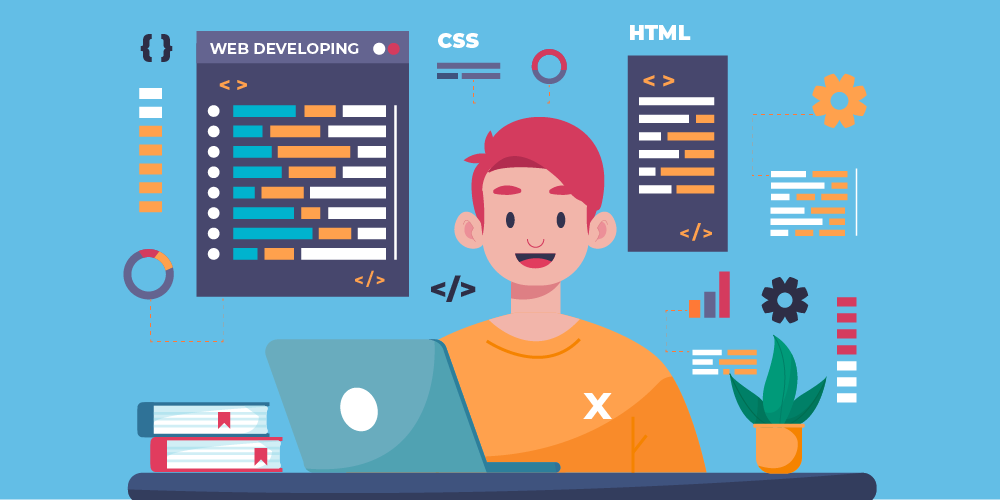11 Cool FACTS About Programming and Coding You NEED to Know
- admin
- 2023-07-12
- 3 min read

Coding and programming have turned into essential skills in today’s world. From adults to first graders, programming and coding have grabbed the attention of people of all age groups. While coding and programming skills may come naturally to some people, they can appear a bit scary to others. At first glance, it may not sound very easy, but there is a fun way to look at it too.
Here we have compiled the 11 most incredible facts about programming and coding that you need to know. Please go through them to change your outlook on the topic!
1. Wide Variety of Options:
Contents
- 1. Wide Variety of Options:
- 2. Historical Importance of Coding:
- 3. Exceptional facts about Java:
- 4. Special Features of Python Language:
- 5. The Father of Computer Virus Defense Techniques:
- 6. The Growing Demand for Coding and Programming:
- 7. Know About The First Programmer:
- 8. Earn Big With Coding and Programming Skills:
- 9. Coding and Programming- The Study of 0s and 1s:
- 10. Bursting the Coding and Programming Myths:
- 11. Power Up Brain By Coding and Programming Skills:
- Conclusion:
Not many people know, but there are over 700 types of coding languages. Some of the programming languages which are used most often are Java, Python, HTML, PHP, Swift, Scala, Go, etc. On top of that, new programming languages can be created anytime.
2. Historical Importance of Coding:
Besides the contemporary significance, the importance of computer codes goes way back to historical times. Surprisingly, coding and programming played a pivotal role in ending World War II. Thanks to the cryptologic and mathematical skills of Alan Turing, an English computer scientist, the Nazi’s code machine was successfully developed.
3. Exceptional facts about Java:
One programming language which almost everyone would have heard of is Java. Not many people know that this programming language serves both as a compiler as well as an interpreter. Java is also widely known as a dynamically typed language as the variable type is set at runtime. Moreover, a programmer can also create new variables at runtime in Java.
4. Special Features of Python Language:
Most modern programming languages return only one value from a single function, except the Python programming language for Data Science. Also, unlike other coding languages, a programmer can represent infinity as an integer through float values in Python.
5. The Father of Computer Virus Defense Techniques:
Fred Cohen developed a parasitic application that could ‘infect’ computer systems, naming this application a “computer virus.”
6. The Growing Demand for Coding and Programming:
As per many experts, in the coming times, the knowledge of coding and programming languages will become as necessary to daily life as literacy is now. In other words, this could also mean that countries with a 99% literacy rate now could expect about 99% of people to possess coding skills in the future.
7. Know About The First Programmer:
The very first person to achieve the modern understanding of a program was Ada Lovelace, the daughter of a mad poet. She was the only legitimate daughter of the renowned poet Lord Byron. While working with a peer on a general-purpose mechanical computer, she recognized that the machine could do much more than perform just simple and pure calculations.
8. Earn Big With Coding and Programming Skills:
One thing which makes coding and programming much more attractive to society is that it brings in big money. Good knowledge of coding and programming languages can give students high returns on cash. Another pleasant fact is that a data scientist’s average salary goes up to $100,000.
9. Coding and Programming- The Study of 0s and 1s:
Unlike other worldly languages, which are made up of various characters, coding and programming languages are made up of just 0s and 1s. There are infinite combinations possible out of these two digits. Therefore, new software can be written at any time.
10. Bursting the Coding and Programming Myths:
One of the common misconceptions people have about coding is that it can be learned only by people who have a technological background. However, in today’s world, about 70% of coding jobs are in career fields entirely unrelated to technology.
11. Power Up Brain By Coding and Programming Skills:
Studies have shown that learning to code can enhance brain performance. It provides definite cognitive benefits such as critical thinking, creative problem-solving skills, and teamwork spirit. Learning programming languages stimulates activity in the brain, dramatically reducing the probability of degenerative diseases like Alzheimer’s.
Conclusion:
Coding and programming languages bring with them a plethora of benefits. Apart from this fact, it is ultimately the cool quotient of coding and programming that appeals to students. For a transparent and quality education, irrespective of situation and location, 21K School is the top choice for thousands of parents in coding and programming!
21K School
Read our latest education blogs here. We are pioneers in proffering personalised, affordable and high-quality lessons using an advanced learning platform.


Join Asia’s Leading Online School and Unlock
endless opportunities
Join Asia’s
Leading Online School
and Unlock endless opportunities

 Thailand
Thailand Afghanistan
Afghanistan





